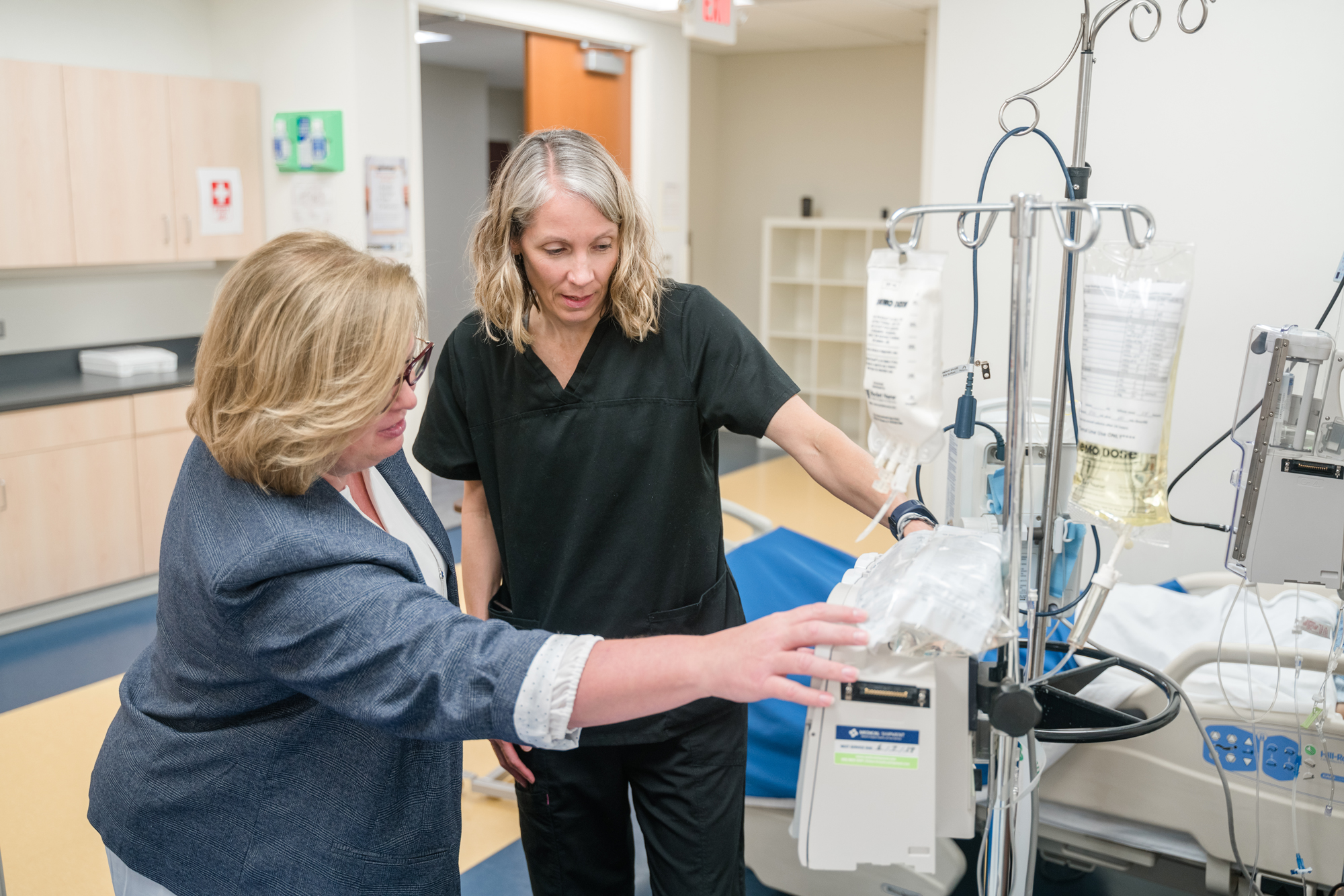Janice Ouellette compares her role at GW Nursing to that of a Christmas elf. As a simulation operation associate, she works behind the scenes, setting up labs and other interactive learning experiences for students.
“It’s like the elves,” said Ms. Ouellette. “The kids go to bed at night and the next morning, everything is done. That’s what sim techs do. You’ll see Med-Surg 1 all set up and then — poof — the next day it’s Med-Surg 2.”
As GW Nursing’s student population has grown, the Simulation Learning and Innovation Center has added staff to keep up with demands of Bachelor of Science in Nursing labs, Objective Simulated Clinical Experiences for graduate students and other simulated events hosted for outside groups.
Crystel Farina, M.S.N., RN the school’s director of simulation and experiential learning, leads a staff that’s grown from one to four over the past couple of years. Ms. Ouellette, Cyndi Kelley and Rebecca Melson, all simulation operation associates, join Paul Collins, who “ties it all together electronically” as the simulation technology administrator, Ms. Farina said.
Ms. Ouellette and Ms. Kelley both transferred to their positions after initially starting at GW Nursing in more administrative roles.
“I Iove that I don’t sit at a desk,” said Ms. Kelley. “I would have been fine staying as a community coordinator but wanted something new for myself.” As a bonus, she now has greater insight into her daughter’s nursing school experience and simulation education at Averett University, Ms. Kelley said.
Mr. Collins was working at Grand Valley State University in Michigan when Dean Pamela Jeffries, then at Indiana University (IU), visited the Grand Valley campus almost 20 years ago. At the time, IU was opening an interdisciplinary simulation center, and Mr. Collins took a job there at Dr. Jeffries’ urging. He has a background as a paramedic and then taught advanced cardiac life support and other courses to health care providers.
“My skillsets in technology and medicine is a match not everyone has,” Mr. Collins said. He knows what a manikin should do in a scenario and how to ensure it happens.
Since health care simulation is a relatively new field, it’s not entirely clear what makes up the right set of skills, Ms. Farina said. But she’s found a formula that works for her team — and the students. “Now things are going so smoothly,” Ms. Farina said.


